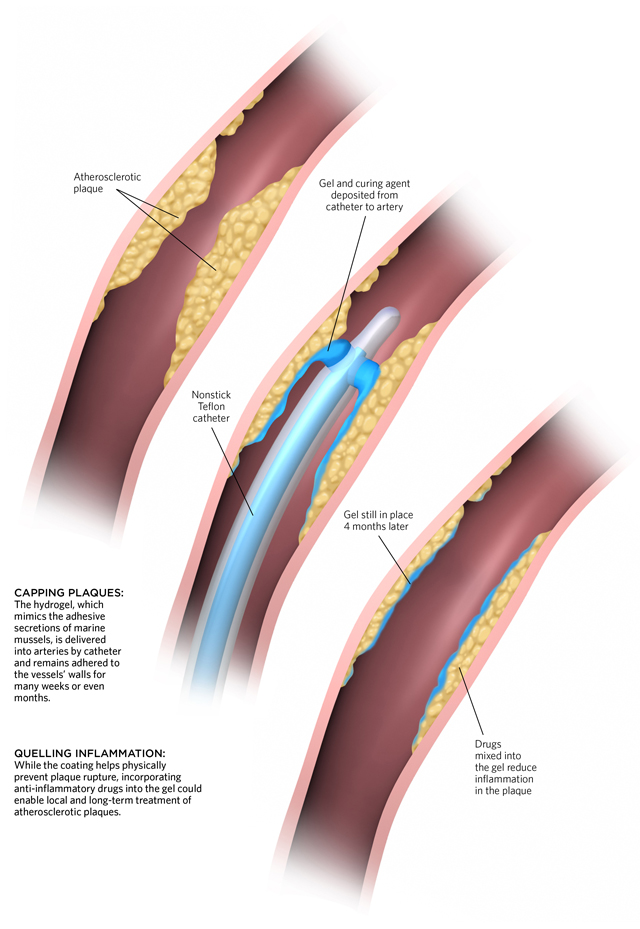 GEORGE RETSECK
GEORGE RETSECK
A problem with effective delivery of anti-inflammatory drugs to targets inside blood vessels is how to keep those drugs from being washed away by the rapid rate of blood flow. Gluing them in situ is the solution offered by Christian Kastrup of the Massachusetts Institute of Technology.
The glue, or hydrogel to be precise, is a synthetic material that mimics the qualities of marine mussels’ adhesive secretions. “We thought, well, if marine mussels can stick so well [to rocks] even with waves crashing over them, maybe that chemistry could be used inside blood vessels,” says Kastrup.
The gel was mixed with a curing agent, delivered to the walls of mouse arteries through nonstick Teflon catheters, and then allowed to cure before catheters were removed, in ...



















